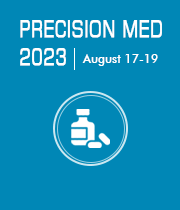Personalized Medicine for COVID-19
The current coronavirus outbreak (COVID-19) has spread over the world, infecting millions of people and killing thousands of others. Despite the fact that many questions remain unanswered, our understanding of COVID-19 pathophysiology has vastly improved in many areas, including the virus's development, the role of ACE2 receptors, the type and severity of organ involvement, the importance of coagulopathy and endotheliopathy, and the role of disproportionate cytokine response. The search for a precise COVID-19 treatment has already begun. Individual vulnerability to infection, as well as inter-individual variability in clinical course, prognosis, and response to treatment, can all be elucidated using personalized medicine. Integrating personalized medicine into clinical practice has the potential to transform health care by allowing for the development of preventive and therapeutic strategies tailored to individual profiles, as well as improving outbreak detection and defining transmission patterns at a more global level.
- Clinical Trials
- Homogeneous Groups Of COVID-19 Patients
- Heterogenous COVID-19 Population
- Precision Medicine-Guided Trials
- Randomized Controlled Trial

Bernd Blobel
University of Regensburg, Germany
Roy Gary Beran
University of New South Wales, Australia
Matthias Schwab
University of Tubingen, Germany
Thomas Webster
Interstellar Therapeutics, United States
Boris Tankhilevich
Magtera, Inc., United States
Isabella Friis Jorgensen
University of Copenhagen, Denmark


Title : The use of anti seizure medication therapeutic blood level determination to personalise the treatment of epileptic seizures especially in patients attending the accident and emergency department
Roy Gary Beran, University of New South Wales, Australia
Title : Personalized and precision medicine (PPM) can be established as a unique healthcare model through biodesign-driven and inspired biotech, translational applications. This approach aims to ensure human healthcare, wellness, and biosafety.
Sergey Suchkov, Institute for Biotech & Global Health of RosBioTech and A.I. Evdokimov MGMSU, Russian Federation
Title : Monitoring folds localization in ultra-thin transition metal dichalcogenides using optical harmonic generation
Ahmed Raza Khan, Australian National University, Australia
Title : A systematic review of regulatory approaches for Direct- To- Consumers (DTC) genetic testing
Kavitha Palaniappan, Duke-NUS Medical School, Singapore
Title : Regulatory framework of in vitro diagnostic and artificial intelligence for precision medicine
Pei Ting Sarah Chou, Regulatory Affairs Professionals Society, Taiwan
Title : Unraveling cancer stem cell signatures in circulating tumor cells of metastatic colorectal cancer: Investigating ALDH1A1 and the repurposing potential of disulfiram via scRNA-seq
Nurul Syakima Ab Mutalib, Universiti Kebangsaan Malaysia, Malaysia